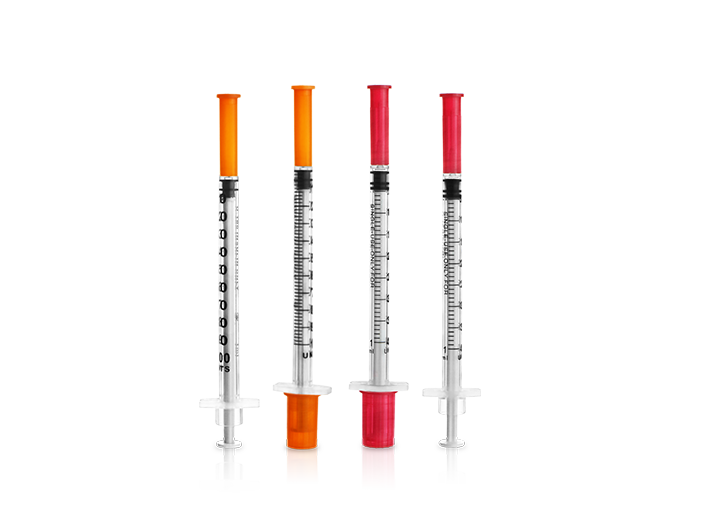diabetic insulin syringes play a crucial role in the management of diabetes by allowing individuals to administer insulin injections. These syringes are specifically designed for diabetic patients and ensure accurate dosing, ease of use, and minimal discomfort during injection.
The Design and Functionality of Diabetic Insulin Syringes
Diabetic insulin syringes consist of three main components: the barrel, plunger, and needle. The barrel is marked with clear measurement indicators that allow users to accurately measure their required dose. The plunger fits snugly into the barrel and enables smooth movement when pushing the medication through the needle. The needle itself is ultra-thin and short in length to minimize pain during injection.
In addition to these basic components, some diabetic insulin syringes also feature safety mechanisms such as retractable needles or built-in sharps containers. These safety features help prevent accidental needlestick injuries and promote proper disposal of used syringes.
The Importance of Personalizing Client Experiences

Personalizing client experiences is essential in healthcare settings, especially when it comes to managing chronic conditions like diabetes. By understanding each patient’s unique needs, preferences, and lifestyle factors, healthcare providers can tailor treatment plans that optimize outcomes while ensuring patient satisfaction.
In the context of diabetic insulin syringes, personalization involves considering factors such as needle gauge preference (thinner needles may be preferred by those who experience discomfort), dosage requirements (some patients may require higher doses than others), and individual dexterity levels (specialized designs may be necessary for individuals with limited hand mobility).
The Role of Orthopedic Implants in Personalized Medicine
orthopedic implants are another area where personalization plays a crucial role. These implants are used to replace damaged or diseased joints, such as hips or knees, and restore mobility and quality of life for patients. Personalizing orthopedic implants involves selecting the most suitable implant size, material, and design based on each patient’s unique anatomical characteristics.
Advancements in technology have enabled the use of 3D printing to create custom-made orthopedic implants that perfectly match an individual’s joint structure. This level of personalization improves surgical outcomes, reduces complications, and enhances patient satisfaction.
WEGO Medical: Revolutionizing Personalized Healthcare
WEGO Medical is at the forefront of revolutionizing personalized healthcare by leveraging innovative technologies and data-driven approaches. The company specializes in developing advanced medical devices tailored to meet individual patient needs.
Through extensive research and collaboration with healthcare professionals, WEGO Medical has introduced diabetic insulin syringes that incorporate cutting-edge features like painless injection mechanisms and smart dosage tracking systems. These advancements not only improve treatment adherence but also enhance overall patient experience.
In Conclusion
Diabetic insulin syringes are vital tools in diabetes management, ensuring accurate dosing while minimizing discomfort during injections. Personalizing client experiences through factors such as needle gauge preference and dosage requirements can significantly improve treatment outcomes for individuals with diabetes. Similarly, orthopedic implants exemplify how personalization enhances surgical success rates in restoring mobility for patients with joint-related issues. Companies like WEGO Medical continue to drive innovation in personalized healthcare by developing advanced medical devices that cater to individual needs.
